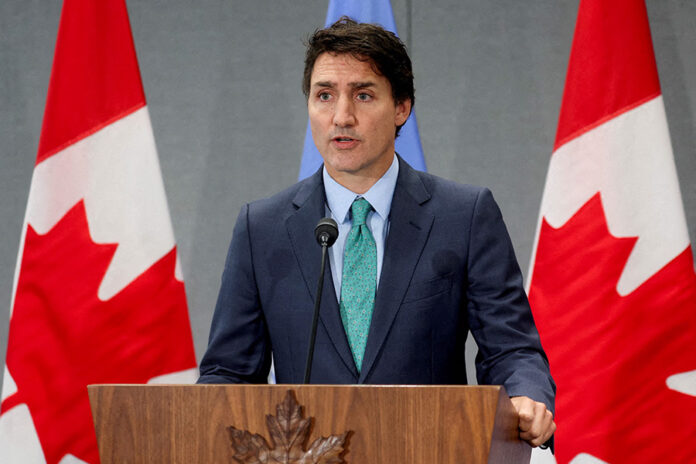It seems like Canadian Prime Minister Justin Trudeau is getting closer to making an announcement about stepping down, although he hasn’t made a final call yet, according to a source who knows what’s going on.
This insider shared the info with Reuters after the Globe and Mail suggested that Trudeau might reveal his decision as soon as Monday regarding his resignation from leading the Liberal Party after nine years.
The source asked to remain anonymous since they weren’t authorized to speak publicly. If Trudeau does decide to leave, it would put the party in a tough spot without a permanent leader, especially since polls indicate they are likely to face significant losses against the Conservative opposition in an upcoming election due by late October.
While it’s unclear exactly when he’ll announce his plans, sources told the Globe and Mail that many expect him to do so before an emergency meeting of Liberal lawmakers set for Wednesday. A growing number of Liberal MPs, worried about some pretty dismal poll results, have been openly calling for Trudeau to step aside.
As for comments from his office, they haven’t responded yet outside of regular hours. According to his schedule for Monday, he’s set to join a cabinet committee meeting on Canada-U.S. relations virtually.
It’s still uncertain whether he’ll resign right away or stay on until a new leader is chosen, as noted in the Globe and Mail report.
More and more people are urging for resignations.
Trudeau became the leader of the Liberal party back in 2013 when things were looking pretty bleak for them, as they found themselves in third place in the House of Commons for the very first time.
If he decides to step down, it could lead to renewed demands for a swift election to establish a stable government that can handle the upcoming administration of President-elect Donald Trump over the next four years.
According to one source, Trudeau has been chatting with Finance Minister Dominic LeBlanc about whether he might be open to stepping in as interim leader and prime minister. However, this plan wouldn’t work if LeBlanc is thinking about running for the leadership himself.
At 53, Trudeau has managed to keep his Liberal colleagues at bay, despite their concerns about polls and the potential loss of secure seats in two special elections. However, since December, the pressure for him to step down has been mounting.
This started when he attempted to demote Finance Minister Chrystia Freeland—one of his key allies—after she opposed his spending proposals. Instead of backing down, Freeland resigned and accused Trudeau of resorting to political gimmicks instead of prioritizing what’s best for the nation.
Back in 2015, Trudeau brought the Liberals into power with a promise of sunny ways and a progressive agenda focused on women’s rights and tackling climate change. But over time, the realities of running a government took their toll on him. Like many leaders in the West, he found himself consumed by pandemic-related issues.
Even though Ottawa poured money into supporting consumers and businesses—resulting in record budget deficits—it didn’t shield him from public frustration as prices continued to rise. Additionally, a poorly handled immigration policy led to an influx of newcomers that further strained an already tight housing market.
